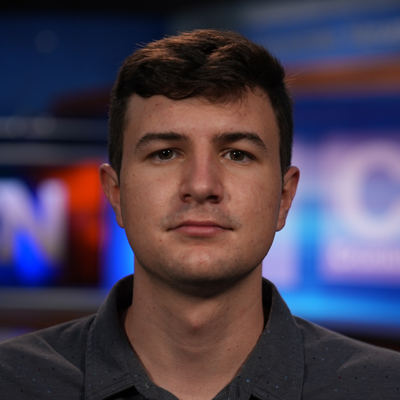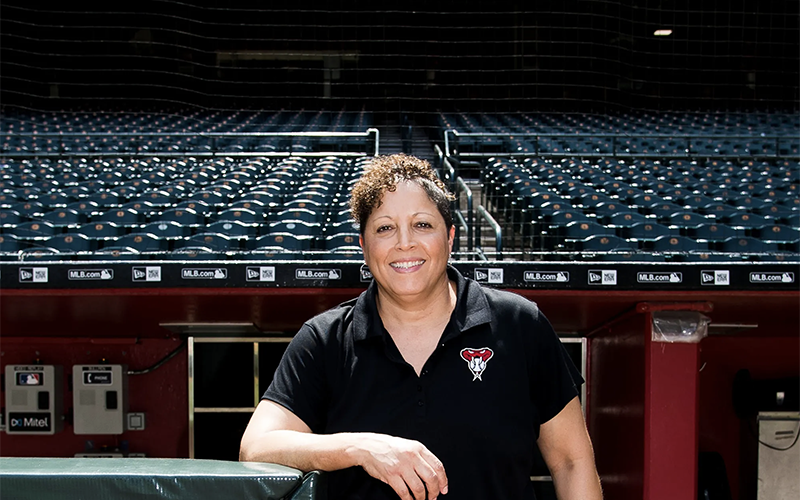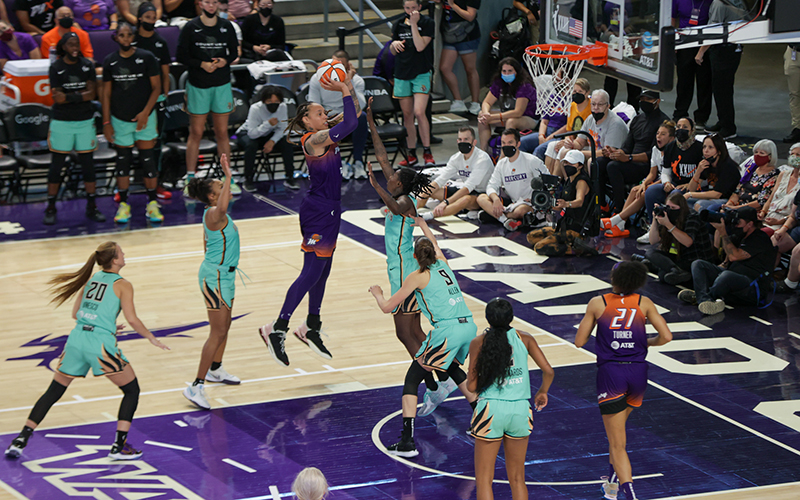PHOENIX – Balance. It is a quality the Jedi Council in the “Star Wars” movie franchise seeks to achieve within a fictional galaxy.
And the Arizona Diamondbacks’ “D-Backs for Change Justice, Equality, Diversity and Inclusion (J.E.D.I.) Council” is aiming to strike a similar balance within the Major League Baseball team’s organization.
Following George Floyd’s murder in 2020, which sparked demonstrations across the country, Diamondbacks CEO Derrick Hall went to Nona Lee, his executive vice president and chief legal officer, and asked her to lead a new business and community initiative that would improve organizational diversity while helping those who have faced social injustice, racism, sexism, homophobia or any form of discrimination.
“It’s been amazing and a labor of love, passion and purpose for me,” Lee said. “I was so thrilled that it was Derrick’s idea and that he has been very involved, intentional and supportive of the things that we want to do.”
Lee, a Black woman who is openly gay, is a trailblazer in many respects. She is the only Black female to hold a chief executive position with a major league team, according to the 2021 Major League Baseball Racial and Gender Report Card, and only one of four total Black or African American executives in that position. She is one of just 14 women to hold a chief title for an MLB team.
How significant is that? The University of Central Florida’s Institute for Diversity and Ethics in Sports, which does the annual report card, gave baseball a D+ in racial hiring and an F in gender hiring.
Lee has always been an overachiever. She is a former Pepperdine basketball standout who also played on a women’s national water polo team at 14. When Hall joined the Diamondbacks in 2005, he saw potential in Lee to contribute to the organization beyond her legal expertise as the team’s general counsel.
“I considered her a rising star and wealth of knowledge,” Hall said. “Her integrity and passion for the company and her job made her an admirable go-to.”
Lee worked with the Diamondbacks while she was in the front office of the Phoenix Suns, Phoenix Mercury and Arizona Rattlers, which all fell under the umbrella of former Diamondbacks managing partner Jerry Colangelo. When Colangelo sold his share of the partnership, Lee moved to the Diamondbacks full time.
Along the way, she has cleared many hurdles, beginning with her days at Pepperdine, then in law school at Oklahoma City University and during her climb in the professional sports industry.
“It was a lengthy journey, and I don’t believe there was any intentionality holding me back,” Lee said. “It was just a matter of practice and habit. Do I think I had to jump through hoops that others would not have to? Absolutely. Do I think it took me longer to get here then it would have taken a white male? Absolutely. Do I think it was intentional? Absolutely not.”
Raising awareness of those practices and habits is a big part of D-Backs for Change’s mission, and Lee has played a major role in creating sustainable change, primarily through the J.E.D.I. Council, which opens lines of communication.
“She has been the leader and has been successful in gaining full company support and embrace,” Hall said. “She has created safe and important forums and settings for education and sharing of thoughts and experiences.”
Lee and the group worked together to create a strategic plan and brought people together in several racial-justice educational sessions that emphasized the importance of growing diversity and inclusion within the organization.
Hall said Lee’s work has created a “road map for all sports franchises.” For Lee, education is at the core of creating sustainable change.
“Education is a part of the process because until you really understand and can relate to the issues in an empathetic and vulnerable way, it’s difficult to make systemic change,” Lee said. “We’re on the path, and I think we will continue to stay on that path and really make some systemic changes.”
Even with the work being done to make sports more diverse and inclusive, change comes slowly. And there are setbacks.
Lee said it was a “disappointment” to her when the Phoenix Mercury were forced out of their own arena, the Footprint Center, by a Disney on Ice event during the recent WNBA playoffs.
And while on a recent trip to Natchez, Mississippi, where her father grew up, Lee said she entered a shop that had drawings of a Sambo character – a prominent caricature of an African-American portrayed as a lazy and incompetent person during the Jim Crow era – positioned behind a target.
“Nobody can tell me that things have changed significantly,” Lee said. “From my view, things have changed in a polite way to the extent that they have to, and to accept people they were forced to.”
In order to accelerate change in the country for future generations, Lee has taken the initiative to create a more inclusive environment. While wrangling with complex legal issues for the Diamondbacks through the years, she has also offered assistance to people of color, the LGBTQ community and women.
The Phoenix Women’s Sports Association is one of multiple organizations that Lee has influenced. Founded by Lee in 2001, the PWSA dedicates itself to “empower young women through sports,” and integrate more women into athletics.
After 20 years, the organization continues to keep that mission in mind.
“Nona had a great vision. She’s done a lot for women in Arizona,” said PWSA board member Erika Mach. “She is always there and available to jump in or answer any questions we have to help the organization reach more young women.”
Mach began volunteering at PWSA nine years ago before joining the board. She played sports throughout her childhood and wanted to give that opportunity to other young women who might not have the same support that she enjoyed.
“I joined because I grew up playing sports, and I was lucky enough to have a family pay for soccer fees and had no issues financially,” she said. “But as an adult, I know a lot of families do struggle with that. Joining the board gave me an opportunity to help people and make sure other young women could be involved in sports.”
By holding fundraising events, the PWSA has awarded scholarships and grants to high school students across the state that help eliminate some of the obstacles that might prevent young women from participating in sports.
“We don’t want that financial barrier to hold them back,” Mach said. “We are there for them. We are going to support them and be as much help as we can so they can pursue those athletic endeavors.”
The Phoenix Women’s Sports Association also provides college and pro female athletes as guest speakers who make presentations to elementary students across the Valley. The guests offer a chance for young girls to see and hear from women in high-level positions in sports.
As an example of the impact, Mach recalled the reaction she experienced after a Grand Canyon softball player addressed a group of young girls.
“After it finished, a bunch of the girls came over and hugged me, thanking me for having her come talk,” Mach said. “The fact that they were so happy to have someone speaking and showing them how girls can be involved in sports is so humbling to me.”
For Lee, it’s just another way to give back.
“I wanted to help girls and women because I knew I wouldn’t be where I am if I hadn’t played sports,” she said. “I wanted to provide that opportunity to others, and I am so grateful to all the women who have come behind me to keep that movement going…”
Lee describes herself as a lucky woman.
She experienced the thrill of a championship when the Diamondbacks beat the Yankees in the 2001 World Series. In 2015, she married her wife and the love of her life, Andrea. In 2018, she became one of the highest ranking gay and African-American woman in sports. And late in 2020, she survived a scare when a vein was lacerated during back surgery and nearly killed her.
However, the people Lee has impacted through her work might consider themselves even luckier.
Hall’s “rising star” has elevated the diversity and inclusion efforts within the Diamondbacks organization, helped women, minorities and LBGTQ+ groups around the Valley and led the fight for change in sports.
“Having someone like Nona continuing to beat the drum will continue to advance the cause,” Hall said. “But her constant push for everyone else here to also beat that drum will accelerate the mission even more.”


